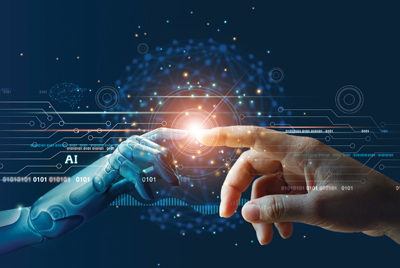Artificial Intelligence: Balancing Tech and Touch in Human Resources
By Julie Caplan, Paychex –
June 19, 2024

SPONSORED CONTENT
Paychex surveyed human resources (HR) professionals and employees on their views of technology, its effectiveness and the challenges it poses. The study reveals current sentiments about artificial intelligence (AI) in HR, the tasks it is reshaping and the delicate balance needed between humans and machines to manage people.
How Technology is Transforming HR
From recruitment to benefits administration, HR professionals are using technology to enhance efficiency across various HR functions.
Adopting AI is a common focus among many business leaders in 2024. More than half (56%) of the HR professionals surveyed already use AI in their operations, and 85% find it effective for HR analytics. However, there is a divided stance on trust: 40% trust AI to make fair HR decisions, 28% distrust it and 32% are neutral.
Just over a quarter of those surveyed (27%) say HR AI improves efficiency in their HR department, saving an average of 7.5 hours a week. More than half (56%) of respondents say technology speeds up employee recruitment and screening, while 41% say it speeds up employee training. They say using technology in tasks related to screening and hiring new job candidates is useful and crucial to business success in a tight labor market.
Opportunities and Challenges
In today's tight labor market, businesses are increasingly turning to technology to streamline talent acquisition and onboarding processes.
Nearly a quarter of HR professionals surveyed anticipate AI will become integral to HR functions in the next five years, while 58% believe it will result in transforming analytics and data management, 46% say it will help in talent acquisition, and 43% believe it will assist employee onboarding and offboarding.
Transparency and Acceptance
As HR departments incorporate AI into their operations, only 11% of employees surveyed say the process is very transparent. Most are either neutral (30%) or somewhat unclear (25%) about its transparency. Employers can enhance this communication by clearly explaining AI s role, its benefits and how it impacts employees day-to-day work.
The balance of human and technology input is also a point of debate, with 41% of survey participants preferring less AI involvement in HR-related decision-making.
There’s strong agreement among surveyed employees that conflict resolution and addressing sensitive professional matters should stay under human direction.
Data privacy showed up as a significant concern, with 68% wary of the data risks AI poses to HR processes. Companies can ensure employee data safety by implementing robust security protocols, regularly auditing AI systems for compliance, and transparently communicating these measures to build trust and reassure employees.
Actionable Steps for Employers:
- Implement policies to safeguard AI practices and ensure data is safe.
- Ensure tools have been validated for compliance with new laws addressing the use of AI in HR.
- Read up on AI to understand how tools may change, and work with legal counsel and trusted vendors to conduct AI audits on your data.
- Discover HR analytics tools and learn how they may better support consultation with clients and your organization.
- Don't lose sight of the human aspect of HR and ensure there is a human element involved in all decisions with AI.
A Balancing Act
HR professionals are cautiously optimistic that AI in HR can work. The time saved, the biases potentially reduced and the significant reshaping of recruitment and onboarding all point to an AI-driven future.
Balancing tech-fueled efficiency improvements with a human touch will be crucial. Employers must ensure AI augments rather than replaces the human element that s so vital to the spirit of human resources.
Access the full article and survey methodology at go.paychex.com/njcpa_jun24.
Key Survey Takeaways
Paychex is an NJCPA member benefit provider. Learn more at paychex.com/accounting-professionals.
Julie CaplanJulie Caplan is the marketing content program manager at Paychex. She can be reached at jcaplan@paychex.com. More content by Julie Caplan: |
This article appeared in the Summer 2024 issue of New Jersey CPA magazine. Read the full issue.